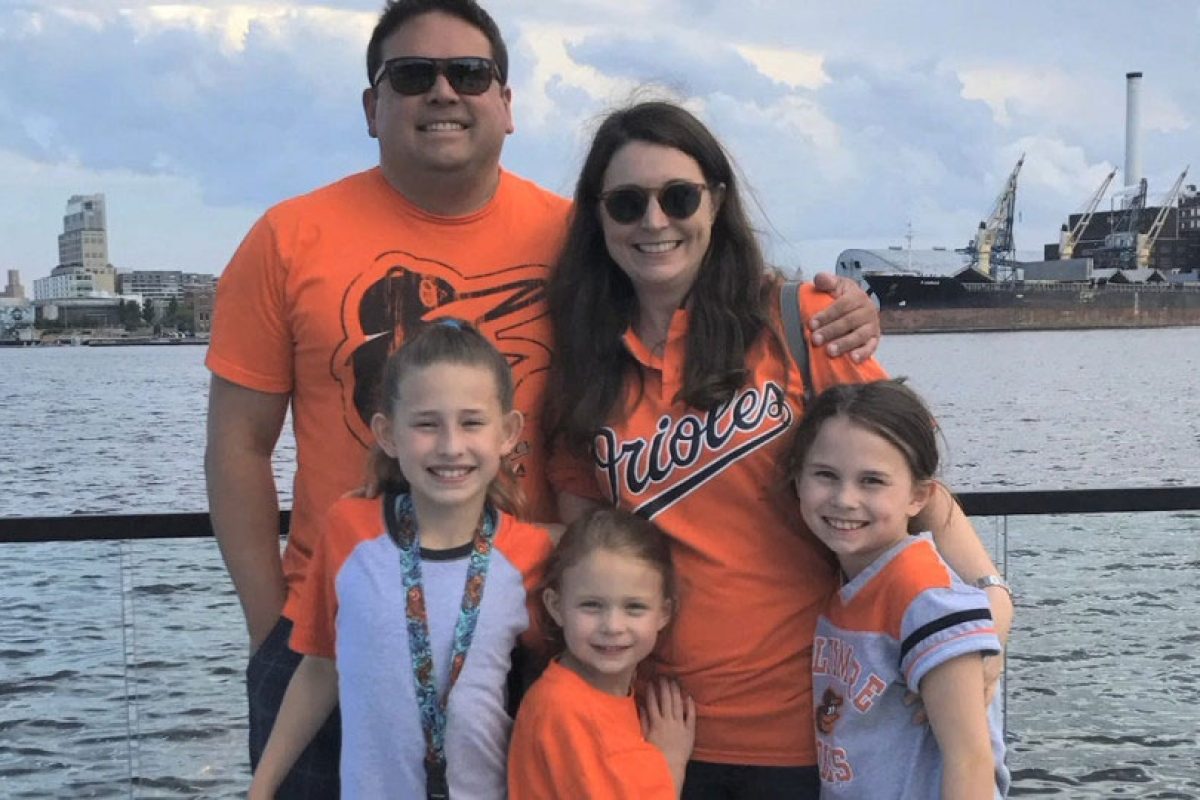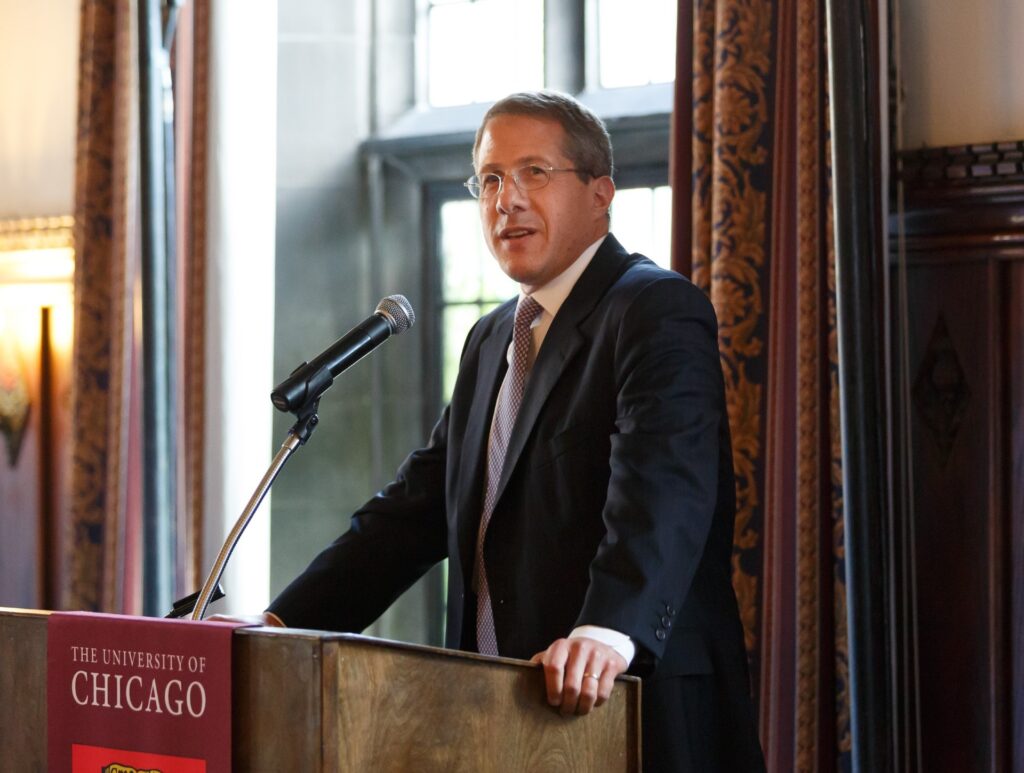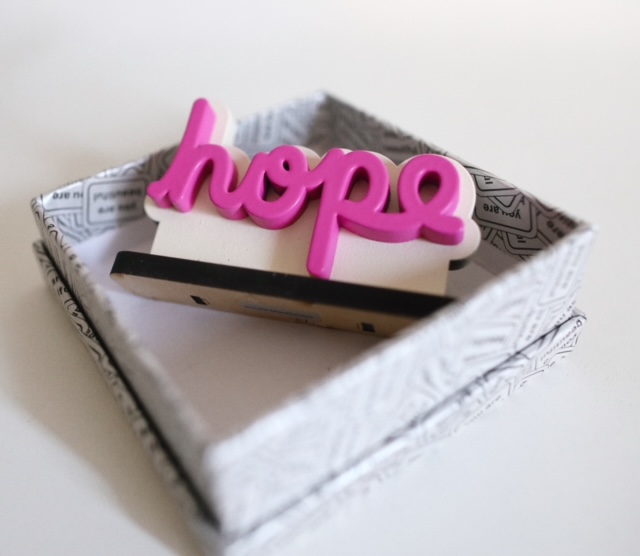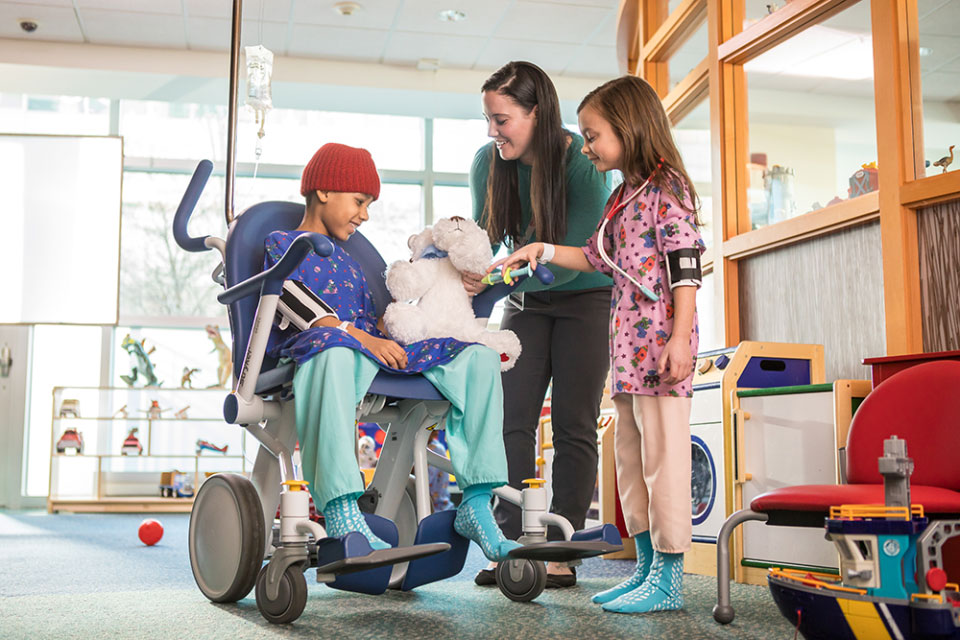Alissa and Peter W. Carlino wish they could sit down with their three daughters and enjoy a worry-free dinner. The meal could be simple: crusty bread, salad with dressing, and pasta.
Yet family recipes are taboo. The Carlinos, of Berks County, Penn., rely on gluten-free alternatives to protect Alissa, 41, and Gianna, 10. Both mother and child have celiac disease, an inherited disease where the immune system has a toxic reaction to gluten, a protein found in wheat, barley and rye.
Bread, pasta, even a dollop of salad dressing laced with gluten derivatives can lead to severe stomach pain and damage to the small intestine.
Gianna, diagnosed two years ago, is vigilant about her diet. Siblings Siena, 9, and Lucia, 5, help by keeping their cookies and snacks in separate bins. But their big sister still misses favorite dishes. “I really like spaghetti,” she said.
Their firstborn is remarkably well-adjusted, yet her parents are determined to help find a cure for the more than 3 million Americans who share this chronic affliction. The couple has donated an unprecedented $1.56 million to the University of Chicago Medicine Celiac Disease Center to fund studies and establish a fellowship for a full-time researcher.
“A cure is important to me because two of the people that I love more than anything else in the entire universe are afflicted with celiac disease,” said real estate developer Peter W. Carlino, 42. “It’s incredibly difficult to witness their suffering when they’re exposed to gluten.”
An international hub of treatment and research
Carol Shilson, Executive Director of the Celiac Disease Center, predicts the Carlinos’ support will make the center an international hub for clinical trials. “This is the kind of gift that can transform the future at light speed,” Shilson said.
Celiac disease affects at least 1 out of 100 Americans but approximately 85 percent are undiagnosed, largely because many physicians neither recognize the symptoms or think to test for it. To complicate diagnosis, the onset of the disease in unpredictable. Pregnancy, surgery, and viruses are among the factors that trigger the digestive system to reject gluten. Symptoms include cramping, diarrhea, fatigue, nausea and vomiting.
Gianna was so sick that she missed school about once a month. “It was terrible,” she said.
That’s when Peter W. Carlino turned to the internet to help. As adults, he and Alissa were equipped to handle the situation, he said. But watching their child’s pain was gut-wrenching. While searching for experts focused on a cure, “the University of Chicago kept coming up,” he said.
Founded by gastroenterologist Stefano Guandalini, MD, in 2001, the Celiac Disease Center doubles as a treatment and research hub. Pediatric and adult patients learn to manage their diets, the only known way to relieve symptoms and promote healing.
Bana Jabri, MD, PhD, a world authority on celiac disease, leads the research team and has overseen dozens of research projects and more than 50 staff-authored or co-authored studies. Her trailblazing innovations include the creation of a mouse model for autoimmune diseases, a springboard to therapeutic strategies. This mouse model is the only one of its kind worldwide.
Though Peter W. Carlino had never set foot on the Hyde Park campus, he gifted $25,000 last fall to the center. Guandalini invited the family to tour the facility, where the parents decided the center shared their commitment.
Alissa Carlino liked the staff’s ongoing, multi-disciplinary collaborations with other UChicago Medicine departments. “Everyone was so enthusiastic about their job, which is sometimes hard to find,” she said.
Jabri took Gianna under her wing, showing her around her lab. “It was really cool, how everything was set up, all these experiments,” Gianna said.
Champions for a cure
The Carlinos returned home and reflected on meaningful ways to champion a cure for celiac disease and enable every family to one day break bread together. Their decision will advance understanding of the condition as well as support the discovery of new treatments. In January, the couple gave $1.5 million to endow the Alissa and Gianna Carlino Fellowship in Celiac Disease Research. So absolute is their commitment that when they discovered the fellowship wouldn’t begin until July, they donated another $37,500 so the research could begin immediately.
Valentina Discepolo, MD, PhD, a visiting postdoctoral fellow in the Department of Pediatrics and Medicine at the center, is the first recipient and will meet her benefactors at annual “Spring Flours” Gluten-Free Gala on April 20, 2018. The event features tasting stations hosted by some of Chicago’s best chefs as well as a three-course, gluten-free banquet in honor of the Italian-born Guandalini, who is retiring this year.
For the Carlinos, philanthropy is as a family legacy. Peter’s grandfather, Peter D. Carlino, funded college scholarships for caddies at his golf club and was a patron of many charitable organizations. When Peter’s brother was diagnosed with Crohn’s disease, his parents, Marshia and Peter M.Carlino, endowed a professorship for inflammatory bowel disease research at Penn State Milton S. Hershey Medical Center. They raise hundreds of thousands of dollars for the hospital each year.
“They set a shining example for me by the things they did,” Peter W. Carlino said. “I hope my kids are inspired as well to help others.”




